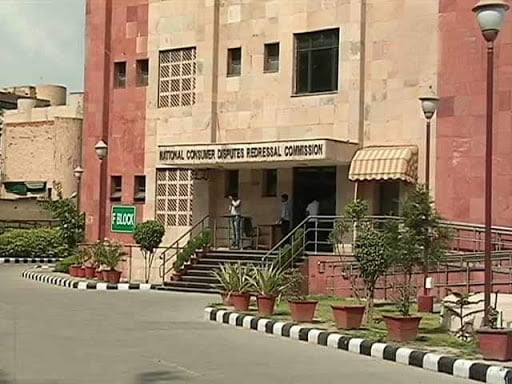The Delhi State Consumer Disputes Redressal Commission has upheld the decision of the District Consumer forum in the Capital on two travel agencies M/s. Cosmos and Thomas Cook for adopting “racist” terms and conditions in a contract.
Talking about the same, the Consumer Disputes Redressal Forum of New Delhi district, has now asked Thomas Cook India Ltd to tender an apology to the complainant, Supreme Court lawyer Ajit S. Bhasme, for supporting such terms and conditions. It has also asked the agency to pay punitive damages of Rs 25,000 as well
As per the case, aggrieved by the judgement of the District Commission M/s. Cosmos filed an appeal before the State Commission in the Capital.
The main contentions by the M/s. Cosmos was that the District Commission has no jurisdiction to decide the issue of racial discrimination against an Indian citizen viz-a-viz foreign nationals under the Consumer Protection Act, 1986.
M/s. Cosmos further contended that the District Commission has erred in observing that pre-determined and nonoptional gratuities had the element of unconscionable bargain and feeling of differential treatment by the Respondent no. 1 Mr. Ajit Bhasme constitutes deficiency in service as per Section 2(g) of the Consumer Protection Act, 1986.
The state commission noted that the grievance of Mr. Ajit Bhasme (Respondent) was that he and his wife faced discrimination during a tour where as Indians they only were charged pre-requisite or pre-quantified and pre-payment gratuities towards the cost of the tour, which made them a laughingstock when other travellers (from other countries) became aware of this fact.
The contention by State Commission was that the M/s. Cosmos being a subsidiary company of Group Voyagers India, LLC of Group Voyagers, Inc., which is a USA based company, have the shelter of sovereign immunity.
However, it is clear that the interests of consumers around the world had drawn the attention of the United Nations and after long deliberations and continued consultations, the United Nations provided guidelines for consumer protection.
The state commission also noted that as per the guidelines provided by United Nations and adopted by the General Assembly in Resolution 39/248 on 16.04.1985 .India too was a signatory to the said resolution.
In pursuance of this, the Consumer Protection Act, 1986 was enacted. Further, in the modern era, where there is close interconnection between different countries as far as trade, commerce and business are concerned, the principle of sovereign immunity can no longer be absolute in the way that it was earlier.
Countries who participate in trade, commerce and business with different countries ought to be subjected to normal rules of the market.
If State owned entities would be able to operate with impunity, the rule of law would be degraded and international trade, commerce and business will come to a grinding halt.
As the Consumer Protection Act 1986 has been enacted in pursuance of UN Resolution, it is wide enough to cover all international conventions in the field of travel, tour, hospitality, industry etc. In view of the aforesaid, the principle of sovereign immunity cannot be absolutely applied to the M/s. Cosmos and the M/s. Cosmos is accountable for the contractual/ commercial obligations undertaken by it in India.
The next contention raised by the M/s. Cosmos is that Mr. Ajit Bhasme does not fall under the category of consumer provided by the Consumer Protection Act, 1986. It is appropriate to refer to Section 2(1)(d) of the Act, which provides the definition of consumer.
The state commission also noted that any person, who hires or avails of any services for a consideration which has been paid or promised or partly paid and partly promised, or under any system of deferred payment and includes any beneficiary of such services other than the person who hires or avails of the services for consideration paid or promised, is a consumer under the Act.
It is clear from the record that consideration was received from Mr. Ajit Bhasme by the M/s. Cosmos for organising the tour in question.
Therefore, Mr. Ajit Bhasme is squarely covered under the category of consumer provided by the Consumer Protection Act, 1986 and the contention of the M/s. Cosmos is devoid of any merit.
The M/s. Cosmos has duly admitted the differential treatment given to the Respondent No.1 with respect to the pre-quantified gratuities. It is further stated by the M/s. Cosmos that such gratuities were not included for UK and US clients as there are different promotional products and different offers made to different markets at different times in different seasons.
Although the M/s. Cosmos submitted that payment of gratuity is purely voluntary and depends on the degree of satisfaction of the customer but had charged compulsory prequantified gratuities from all Indian passengers including Mr. Ajit Bhasme for the tour in question.
It is also noted that American or British passengers on the same tour were not charged any pre-quantified gratuities.
The State Forum observed that the above acts clearly show discrimination for Mr. Ajit Bhasme, which is a subtle insult to human dignity and maltreatment to him for being an Indian and upheld the decision of the district forum.
Case name: M/s. Cosmos vs. Mr.Ajit Bhasme & Thomas Cook India Limited


